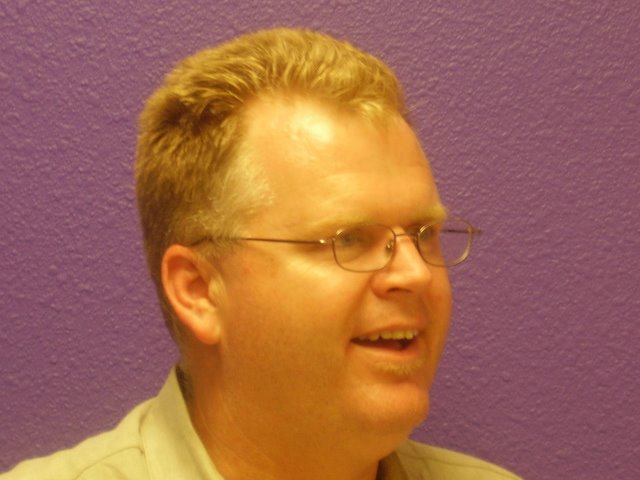I am reading a facinating book by Tim Sanders. It is called Love is the Killer App. Tim takes a contrarians view of business. I am in the business of education but I think the book has some great views regarding "how things work" in the world today.
His premise (life study) is that "yesterday's" business models don't hold up well in today's society. An unashamed steriotypical view of this "old" model would involve stepping on the competition to get to the top while maintaining an extensive database of "trade secrets" that were never shared. Give to others only if you can see what you can get out of it yourself.
His paradymn revolves around knowledge, networks, and compassion. With extensive professional experience in the rapidly changing tech world of Silicon Valley he has seen how his greatest commodity is himself. This does not involve an arrogant view of his abilities but rather a personal quest to learn something useful to others.
He defines love as the act of intelligently and sensibly sharing your intangibles with your bizpartners. He believes today's market is more about the intangibles rather than the tangibles.
Based on a book by Joseph Pine and James Gilmore titled The Experience Economy, he (and they) suggest there have been four phases of economic progression: 1) commodity phase - people sold resources in the raw form (e.g., agriculture, energy, precious metals), 2) goods phase - people took commodities and organized them into products, 3) service economy phase - creation of more than goods; it emphasized benefits over features, 4) economic progression phase - organized around experience. The example Tim included from Pine and Gilmore's book which demonstrates these phases involves the grandmother who would bake a birthday cake from scratch taking half a day and cost less than a dollar (commodity phase). The mother (goods phase) would bake the birthday cake using a boxed cake mix taking about an hour and costing a couple dollars. The wife (service phase) would purchase the same birthday cake at a bakery costing about ten dollars. The phase we are just entering relys heavily on experiences. Now we have to stage an experience for the birthday by going to Chuck E. Cheese, Disney Club, etc. costing over a hundred dollars. We are currently in a generation who expects/desires this experiencial existence and is willing to seek it out. Another example noted in the book was Rainforest Cafe. One moment you are shopping in the mall and the next you are in the middle of a jungle. The food is not bad at Rainforest Cafe but it also is not known for its exceptional cuisine. It is the experience people are looking for, craving, expecting.
How does this relate to my world?
These "people" are us, our friends, neighbors, students! This really helped give me some insight to what my students are "expecting." They are bombarded by "experiences" at every turn. The classroom might be the most somber place they spend anytime each week. I am now thinking of ways to make education "an experience." I am fortunate to be in allied health education where practicums and internship are common place; but what about the classroom?
How about church? If today's culture is seeking an experience I don't think this would end on Sunday mornings. I am fortunate to attend a church that appreciates this desire. We have not yet perfected it yet but honest efforts are leading us in this direction. I think understanding this new phase we are now entering helps explain and justify EPIC services. People are looking for experiential worship services which are interactive. They want to participate in the services. This is a great model of how to apply this understanding of today's "culture."
If I can now just think how to take this into the classroom. I don't think it will be difficult but I would love to have your suggestions. I would also like to hear any views you have regarding this experiential economy. How is it affecting your world? Take care.
Sunday, March 20, 2005
Subscribe to:
Post Comments (Atom)


No comments:
Post a Comment